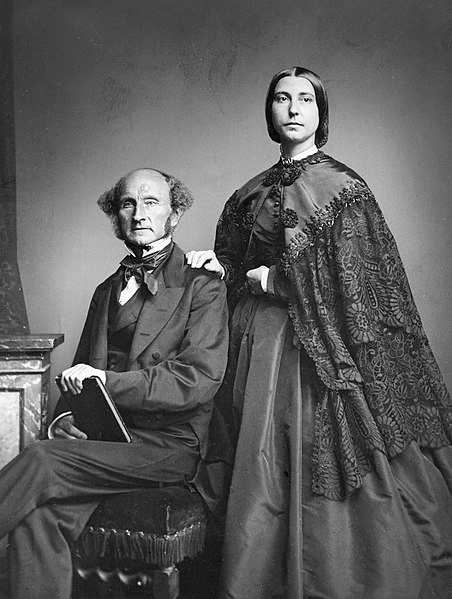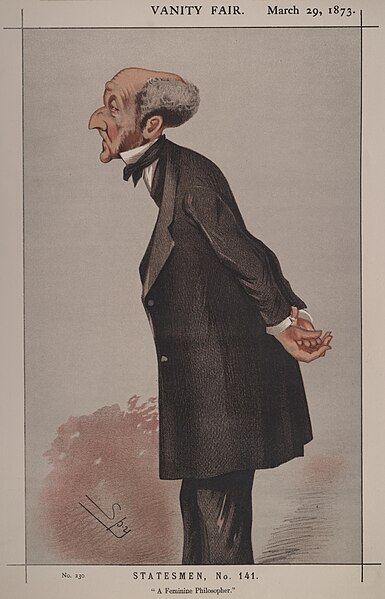Paternalism is action that limits a person's or group's liberty or autonomy and is intended to promote their own good. Paternalism can also imply that the behavior is against or regardless of the will of a person, or also that the behavior expresses an attitude of superiority. Paternalism, paternalistic and paternalist have all been used as a pejorative for example in the context of societal and/or political realms and references.
Child wearing a child harness
John Stuart Mill was an English philosopher, political economist, politician and civil servant. One of the most influential thinkers in the history of liberalism, he contributed widely to social theory, political theory, and political economy. Dubbed "the most influential English-speaking philosopher of the nineteenth century" by the Stanford Encyclopedia of Philosophy, he conceived of liberty as justifying the freedom of the individual in opposition to unlimited state and social control.
1873 portrait by George Frederic Watts
John Stuart Mill and Helen Taylor. Helen was the daughter of Harriet Taylor and collaborated with Mill for fifteen years after her mother's death in 1858.
"A Feminine Philosopher". Caricature by Spy published in Vanity Fair in 1873
"The utilitarian doctrine is, that happiness is desirable, and the only thing desirable, as an end; all other things being only desirable as means to that end." ~ John Stuart Mill, Utilitarianism (1863)





